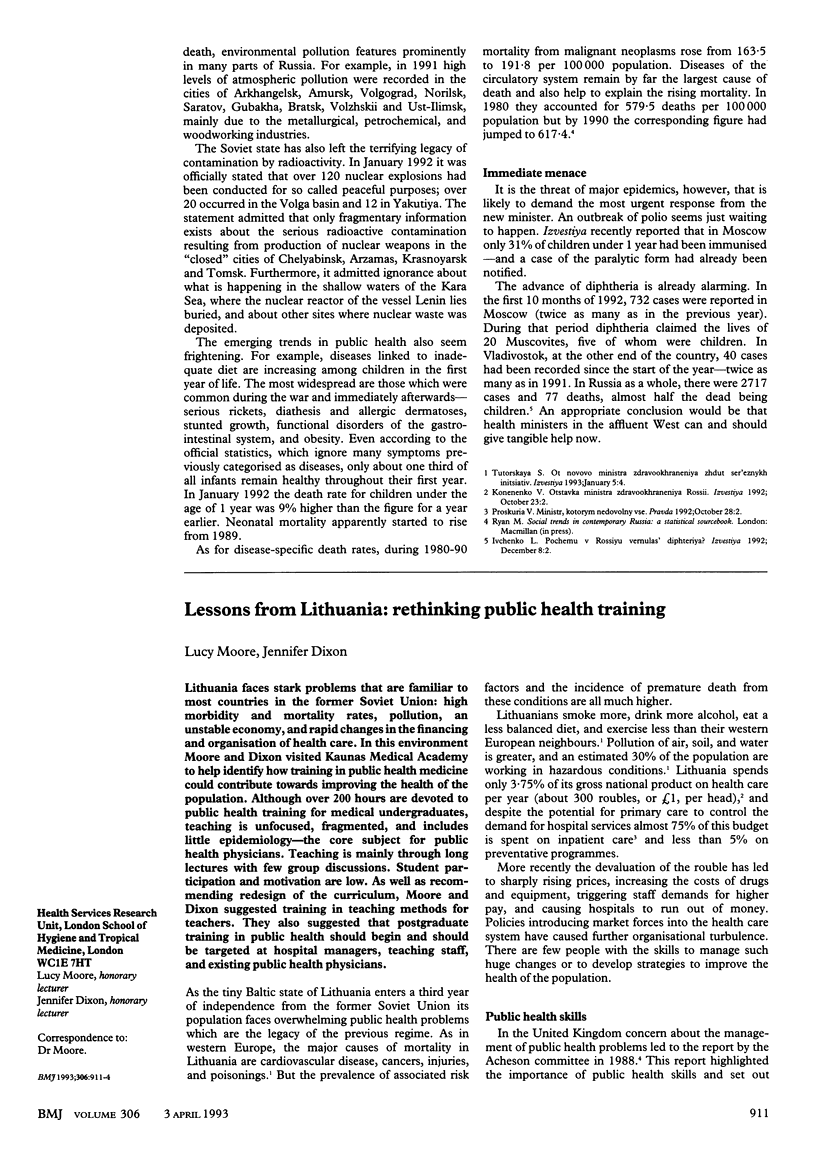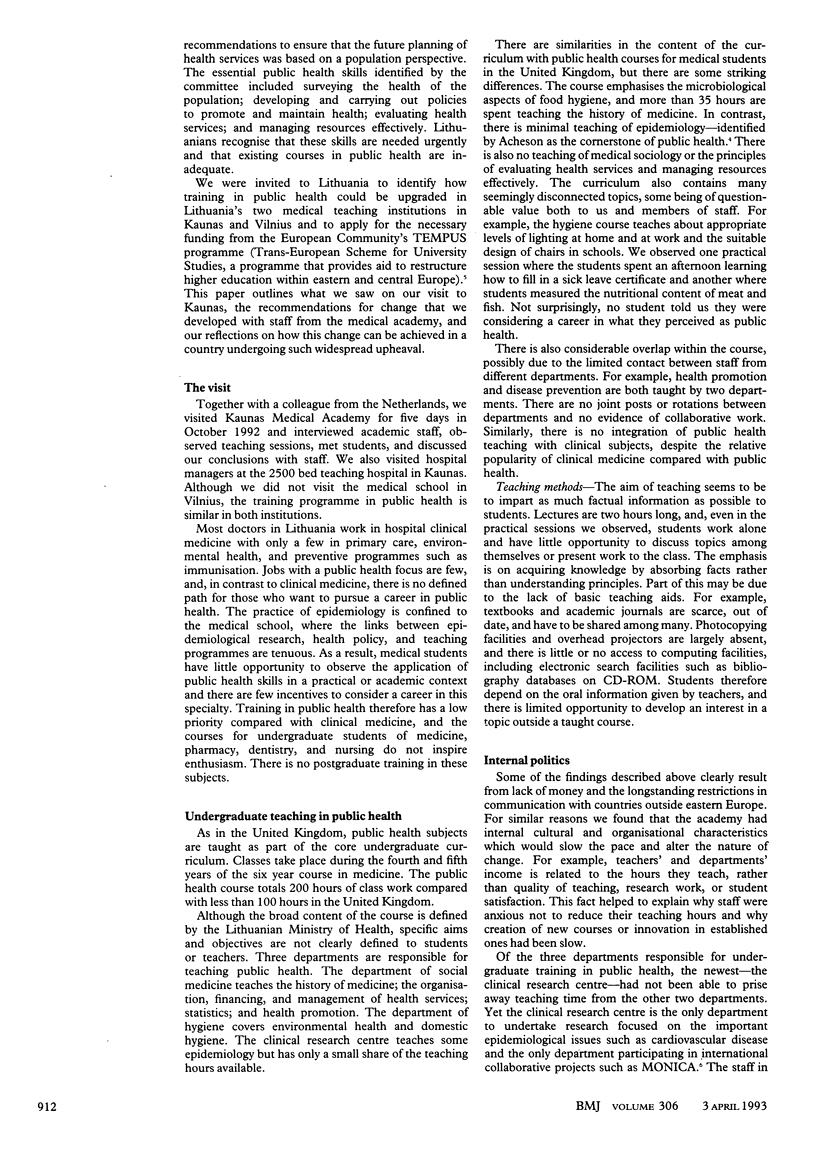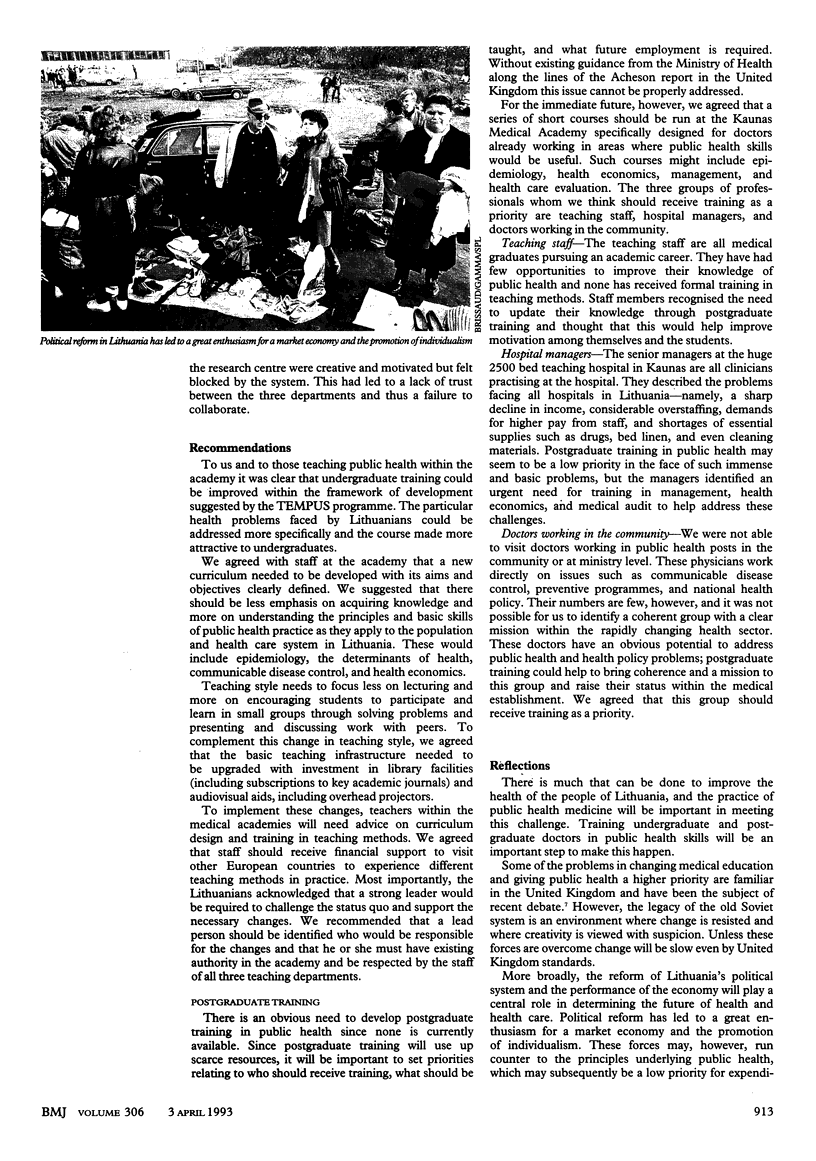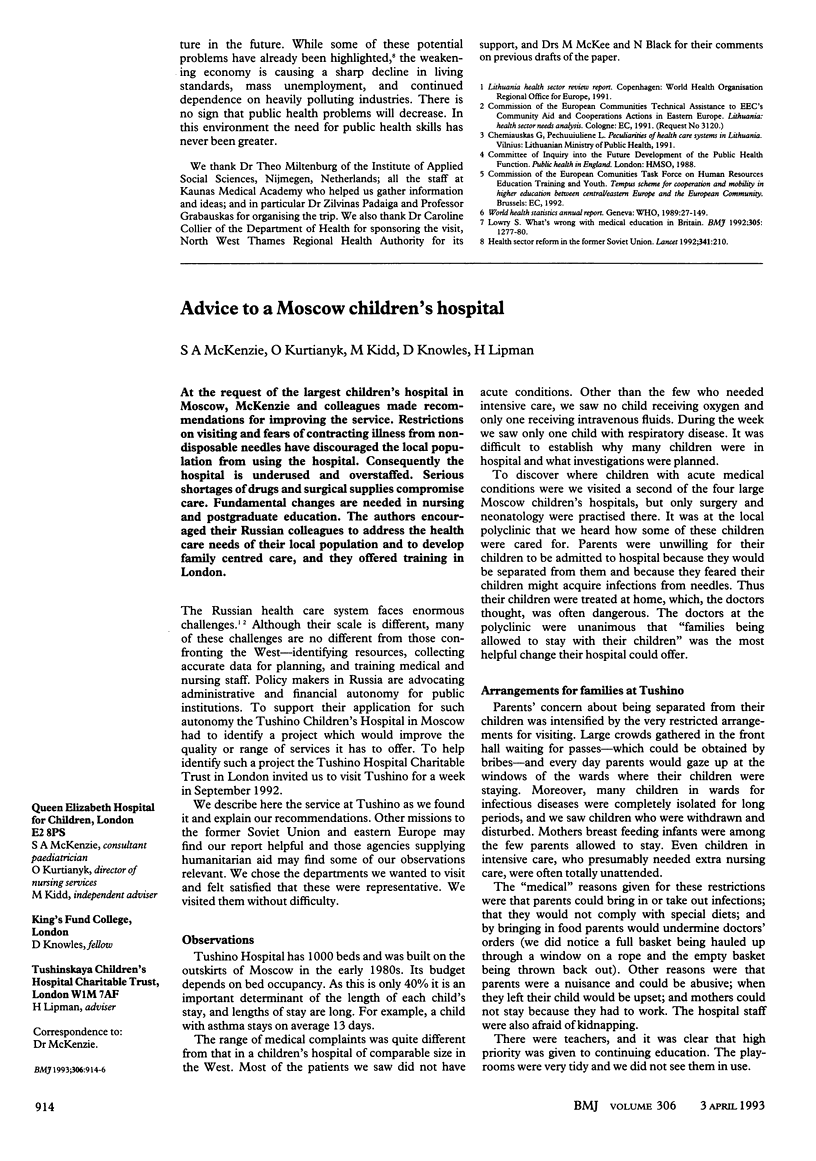Abstract
Lithuania faces stark problems that are familiar to most countries in the former Soviet Union: high morbidity and mortality rates, pollution, an unstable economy, and rapid changes in the financing and organisation of health care. In this environment Moore and Dixon visited Kaunas Medical Academy to help identify how training in public health medicine could contribute towards improving the health of the population. Although over 200 hours are devoted to public health training for medical undergraduates, teaching is unfocused, fragmented, and includes little epidemiology--the core subject for public health physicians. Teaching is mainly through long lectures with few group discussions. Student participation and motivation are low. As well as recommending redesign of the curriculum, Moore and Dixon suggested training in teaching methods for teachers. They also suggested that postgraduate training in public health should begin and should be targeted at hospital managers, teaching staff, and existing public health physicians.
Full text
PDF



Images in this article
Selected References
These references are in PubMed. This may not be the complete list of references from this article.
- Lowry S. What's wrong with medical education in Britain? BMJ. 1992 Nov 21;305(6864):1277–1280. doi: 10.1136/bmj.305.6864.1277. [DOI] [PMC free article] [PubMed] [Google Scholar]



